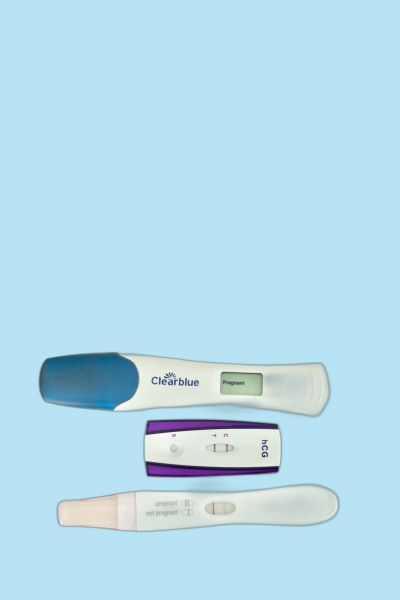
How Do I Know If
I'm Pregnant?
By Kathleen Morrison
February 3, 2022
You already know a missed period can be a sign that you may be pregnant, but it can also be an indicator of stress, the result of a change in diet or lifestyle, or you may just be young and your period isn’t regular yet. It can be helpful to know what other signs to look out for before you run straight to the store for a pregnancy test.
Early signs of pregnancy
Everybody reacts differently to pregnancy, but there are a few common signs and symptoms that occur early in the process that may clue you into what’s going on.
Tender or Swollen Breasts
Many of us experience this right before or during our periods. The same hormones (estrogen and progesterone) that fluctuate during our cycles also increase during pregnancy to trigger the development of the milk duct (among other things). This development often means swollen and sore breasts early in pregnancy.
Increased Urination
You might find yourself urinating more often than usual early in pregnancy. You shouldn’t feel the pain or urgency that signals a UTI, but the amount of blood in your body increases during pregnancy and causes your kidneys to process extra fluid that ends up in your bladder.
Light Bleeding
Many people may mistake an unusually short or light amount of bleeding as their period, but this bleeding can be caused by the implantation of an embryo into your uterine wall. This kind of bleeding typically only lasts 1-2 days and may be brownish or light pink in color.
Nausea
You probably recognize “morning sickness” as a common symptom of pregnancy, but that’s a bit of a misnomer. This kind of nausea can occur at any time of day and is caused by multiple factors since there’s a lot happening in your body during this time! Hormones, blood sugar levels, and fatigue can all play a contributing role (hence why many people find their nausea worse in the morning when their blood sugar is lowest). Your genetics can also play a role—if others in your family experience morning sickness, odds are you will too.
Strong Food Aversions or Cravings
Sudden changes in your food preferences are another well-known pregnancy sign—we’ve all seen sitcom husbands running out to get their pregnant wives pickles and ice cream. Increased hormones and the new caloric need of growing a fetus can throw your relationship with foods out of whack. You may find yourself craving things you used to hate, or getting nauseated at the sight of foods you once loved.
Mood Swings
Sudden changes in mood may be a familiar period or PMS symptoms for you, but they can also be a pregnancy sign—yeah, it’s confusing. Hormonal changes, along with the general stress of a big life change, can lead to irritability, weepiness, or even an unexpected boost in energy. Once again, estrogen and progesterone, along with hCG, are likely contributors to this unpleasant rollercoaster.
How far along could I be?
If you take a pregnancy test and it comes back positive, it’s important to know how far along your pregnancy is so you can track milestones and know what your options are moving forward. A pregnancy’s progress is measured from the first day of your last menstrual period—this is your pregnancy’s gestational age. It’s measured this way because many people don’t know exactly when conception occurred—measuring from the first day of your last period is one way doctors can standardize care. For this reason, the gestational age may technically include the two weeks before you became pregnant. You can ask a healthcare provider to help you calculate your gestational age, or use a calculator like this one to figure it out.

